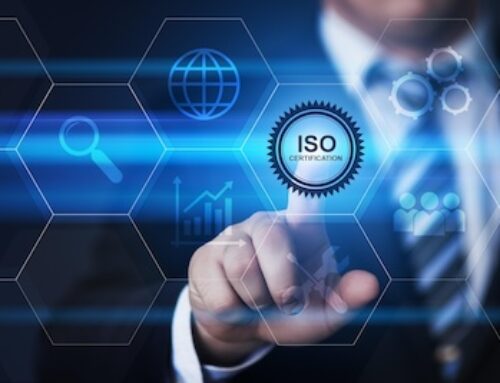In the world of business, finding ways to measure your performance is critical to long-term success. Without a way to track and measure what exactly constitutes success, your business will flounder. That is why establishing key performance indicators (KPIs) is a crucial step for any business serious about quality.
Today, we’ll look at ISO 9001 KPI requirements for quality management systems (QMS), as well as KPIs in GFSI programs.
What Is a QMS?
Establishing a QMS is one of the best ways to ensure the long-term success of your business. The International Organization for Standardization (ISO) helps businesses do just that through the implementation of ISO 9001. This standard consists of a series of guidelines that businesses can use to establish a QMS.
These guidelines include:
- Customer Focus – Meet and exceed customer expectations.
- Leadership – Leaders must establish direction and ensure all are focused on achieving quality goals.
- Engagement of People – A competent and engaged workforce is critical to success.
- Process Approach – Consistent results are achieved when each part of the operation is understood as an interrelated process of a whole system.
- Improvement – A neverending focus on improvement is critical for success.
- Evidence-Based Decision Making – Data should be gathered and analyzed to inform decision-making.
- Relationship Management – Relationships with suppliers, partners, and customers must be well managed.
Why Are KPIs Needed?
KPIs can best be viewed as tools used by an organization to set and achieve performance goals. They provide a quantitative way to measure progress towards an objective. KPIs can be set on an individual or team basis, and help to ensure that all parties are working towards common goals. KPIs can also be used by a company’s decision-makers to make data-backed decisions.
While ISO 9001 lays out guidelines for businesses to use, it does not specify what exact KPIs should be used to measure performance. That is why it is important for an organization setting up a QMS to explicitly define the specific KPIs that will be used to measure quality.
Determining ISO 9001 KPI Requirements for Your QMS
ISO 9001’s guidelines provide a framework that is broad enough to be adaptable to industries of all varieties. However, it is up to each business and its leadership to determine actual KPIs specific to their organization and its unique goals.
Below are just a few examples of ISO 9001 KPI requirements that can be used to conform with QMS standards.
Customer Focus
- Customer Satisfaction Index (CSI) Score – This data can be collected through surveys, feedback forms and customer reviews.
- On-Time Delivery – The percentage of orders delivered on or before specified delivery dates can be tracked.
Leadership
- Risk Management – Leaders can create KPIs to identify risks and establish risk mitigation strategies.
- Internal Audit Effectiveness – Leadership may conduct internal audits, and track the percentage of audit findings resolved.
Engagement of People
- Employee Engagement – Similar to a CSI, an employee satisfaction index (ESI) can be created and measured through employee surveys and turnover rates.
- Employee Training and Competence – Training requirements can be created and measured by the percent of employees who have achieved them.
Improvement
- Process Efficiency – KPIs measuring the time to complete a specific process from start to finish can be used to gauge improvement over time.
- Supplier Performance – A supplier quality rating is a KPI that can be used to evaluate the quality of goods and services received from partners.
These examples are just some of the ways that KPIs can be used to meet the QMS standards set by an organization.
GFSI Programs
When it comes to companies that handle the processing or manufacture of food or related items, safety is of paramount importance.
Established by the Consumer Goods Forum in 2000, the Global Food Safety Initiative (GFSI) is an independent international organization that promotes food safety standards around the world. While the GFSI does not create food safety programs themselves, they do ensure that food safety programs meet certain benchmarks including applicability, measurability, consistency, and continuous improvement.
Some of the food safety programs recognized by the GFSI include:
Safe Quality Food (SQF)
- A comprehensive QMS for food safety, quality, and regulatory compliance recognized by GFSI.
PrimusGFS
- A food safety program designed for agriculture including farming, harvesting, and post-harvest handling of foods.
International Featured Standards (IFS)
- A set of standards covering food safety, quality, and compliance throughout a supply chain.
GlobalG.A.P.
- An international standard for good agricultural practices (GAP).
Creating KPIs in GFSI Programs
The creation and usage of KPIs in GFSI programs will vary from organization to organization. It is up to leadership to determine what are the most important metrics that can be used to measure food safety in the context of each particular business.
When creating KPIs, it’s important to consider the requirements of a particular standard you wish to attain. Your KPIs should also be tailored to the context of your organization, including the type of foods you produce (such as agriculture vs. dairy for example). Compliance with local and international regulations should also be taken into consideration.
Below are some examples of how to use KPIs in GFSI programs.
Traceability and Recall Management
- Measure the time it takes to trace contaminated products and execute a (hypothetical) recall.
Consumer Complaints
- Collect and measure trends in consumer feedback and reviews, and develop responses to these issues.
Audit Performance
- Conduct internal audits, and even external audits. Measure findings and identify areas of non-conformance.
Supplier Performance
- Periodically review and audit the performance of your suppliers, measured against food safety and quality standards.
Training Effectiveness
- Ensure your workforce is competent and capable through regular training and assessments.
Environmental Monitoring
- Regularly test your manufacturing environment for signs of contamination.
No matter what type of foods your organization produces, it’s important to use a robust set of KPIs to ensure that your products are safe for consumption. Proper usage of KPIs will keep you on top of risks, and in harmony with whatever GFSI-recognized programs you implement.
Conclusion
KPIs are a powerful tool to help businesses produce safe, quality products, and stay in compliance with standards of all kinds. Whether you’re looking to implement a QMS, or create a safe environment for processing and handling of foods, a robust, comprehensive set of KPIs are critical to the success of your business.
At Manex Consulting, we’ve helped clients of all types in the manufacturing sphere adopt and meet quality standards and establish KPIs to ensure safety and reliability. Let us help you take the next step towards commitment to quality and safety. Contact Manex Consulting today at info@manexconsulting.com.



